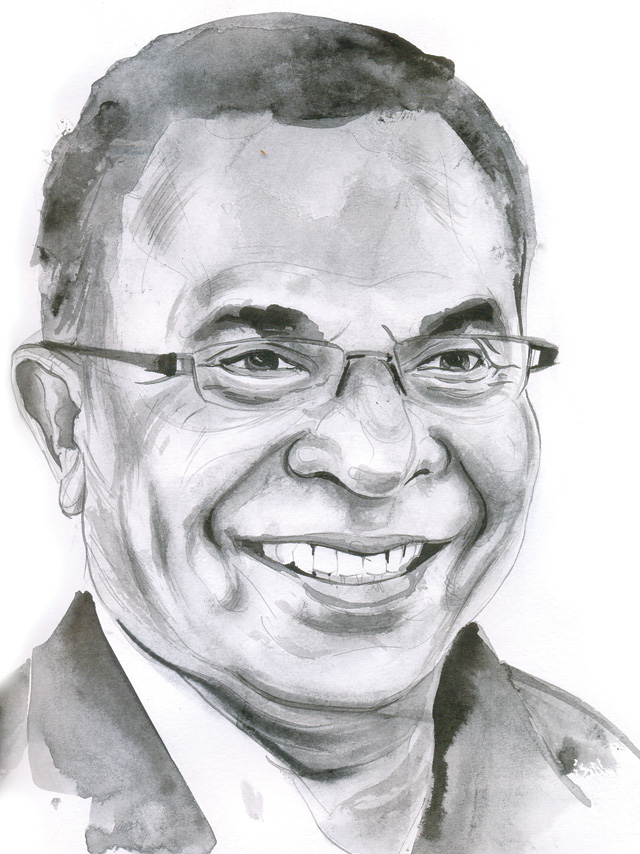The appointment of Rui Maria de Araújo as the new prime minister of Timor-Leste signals a generational shift, with many pegging the young turk to ably fill the shoes vacated by the country’s independence hero
By David Hutt
Illustration by Victor Blanco
When Xanana Gusmão, Timor-Leste’s independence hero and political figurehead, announced in January that he would resign as prime minister, it came as little surprise – he had been talking about it for several years. Nonetheless, the news got political experts discussing who, exactly, would replace him.

Many names were bandied about, but Gusmão surprised many when he announced that his successor would be Rui Maria de Araújo, a former health minister and a respected figure in the country’s opposition party, the Revolutionary Front for an Independent East Timor (Fretilin).
According to Damien Kingsbury, personal chair at the School of International and Political Studies at Deakin University, Melbourne, Araújo was an excellent choice. “He’s competent, well-liked and respected and is able to reach across the political divide,” Kingsbury said.
While Gusmão remains a popular leader and will be missed by many Timorese, it is widely accepted that the country’s current leaders must make way for a younger generation. Araújo’s appointment is a clear move in this direction.
Although Araújo is not of the generation of battle-scared guerrilla fighters, such as Gusmão and President Taur Matan Ruak, who have thus far dominated the country’s political landscape, he did play a role in the country’s independence movement, which fought against the Indonesian occupation from 1975 to 1999.
“Despite coming from the opposition party, Araújo’s relationship with Gusmão dates back to when he was a clandestine messenger within the student resistance in the early 1990s,” said Michael Leach, associate professor at the Swinburne University of Technology, Australia.
In 1985, Araújo was awarded a scholarship to study at Satya Wacana University in Central Java, from where he began clandestine activities in support of the resistance struggle. Four years later he was studying medicine and became a member of Renetil, the student resistance movement, editing their newspaper.
In the early 1990s, he graduated as a general practitioner and medical doctor. After a short spell back in Timor-Leste as a doctor, he earned another scholarship to Otago University in New Zealand, where he earned a master’s in public health, writing his thesis on how to develop a public health system in Timor-Leste.
These qualifications led to his appointment as Timor-Leste’s health minister in the first post-independence government in 2001, a position he held until 2007, during which time he also served as deputy prime minister for a year.
“A widely respected figure, Araújo was a political independent until he joined Fretilin in 2010. Most recently, he was a senior advisor to health and finance ministries and is regarded as a highly competent and incorruptible administrator,” said Leach. “These aspects of his public reputation were evidently critical to Gusmão’s choice.”
Araújo’s capabilities will quickly be put to the test, with Timor-Leste facing major challenges in the coming years.
According to Leach, Araújo is expected to begin the long process of steering the country away from expensive megaprojects, such as a heavy oil power plant that has recently raised eyebrows over its cost-effectiveness, and the overspending of its oil and gas revenues, as well as improving governance. “Given that public finances and procurement are in a worse state than is publicly acknowledged, this will be a big job,” Leach said.
In his swearing-in speech last month, Araújo acknowledged these challenges. He said he intended to “fight the culture of bureaucratisation” and promised a “new bureaucratic order that is leaner, more professional, more technical and less politicised”.
Charles Scheiner, a researcher at La’o Hamutuk, a Timorese NGO that reports on development processes in the country, said that, although it’s too soon to tell “how much independence Araújo will have to pursue his own policies”, he has the skills and capabilities to become a successful leader.
“He is younger, less partisan, and a better technical manager than the older generation of leaders,” said Scheiner. “People think very highly of his character and integrity.”
Keep reading:
Shwe Mann: the right man for the job? – With Aung San Suu Kyi likely to be out of the running, some fancy that Shwe Mann will become Myanmar’s next president
